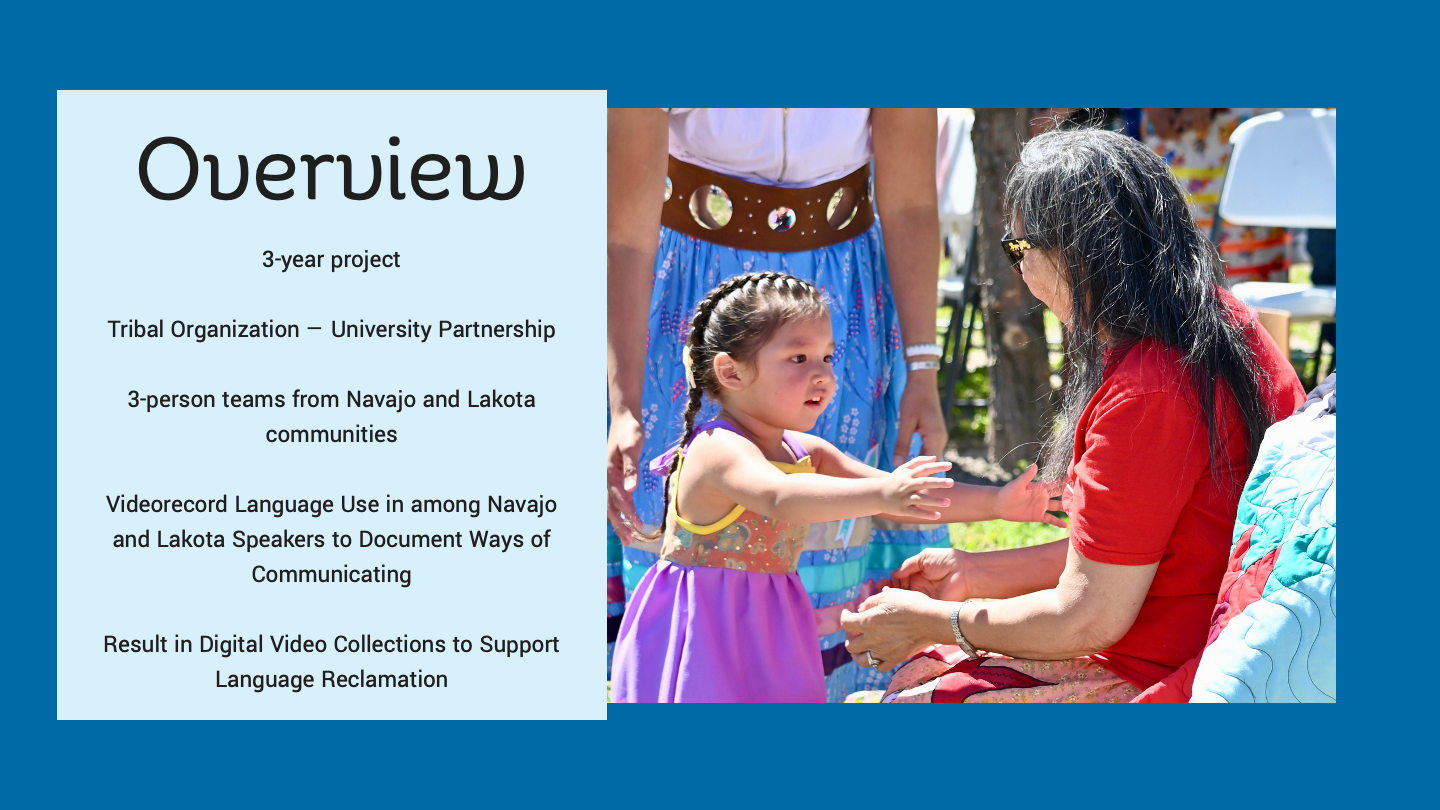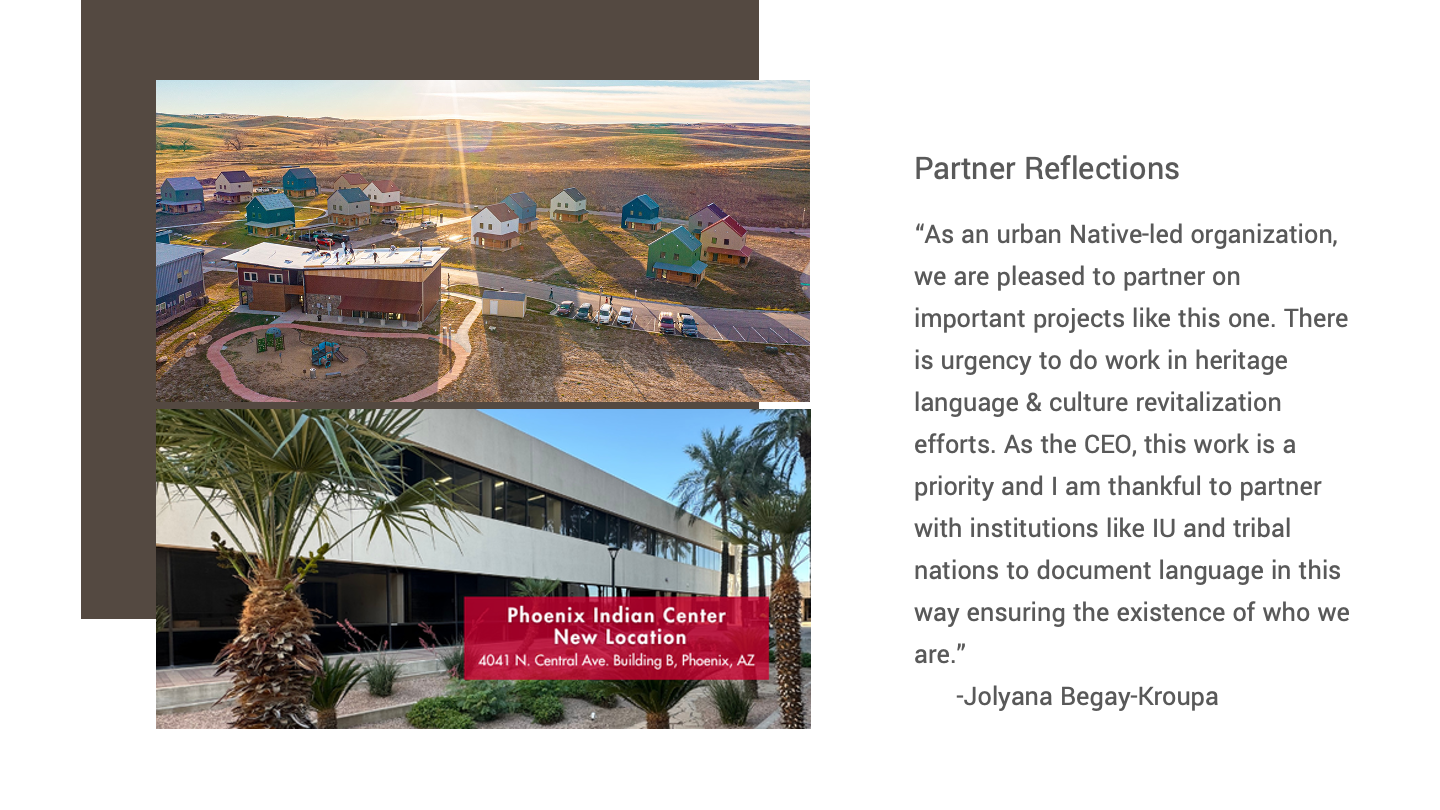The goal of this 3-year project is to document traditional Ways of Communicating (WoC) in Diné/Navajo and Lakota communities to address the imminent loss of linguistic and cultural knowledge. This is based on an understanding of language not only as grammar and lexicon but as a process of human interaction situated within the social and cultural context. The overall goal is to document and archive digital audiovisual recordings of naturally occurring language use of Navajo and Lakota, and the associated metalinguistic information and pragmatic knowledge held by each language community. The recordings will be used by the Navajo Nation and the Lakota Nation to fortify efforts to revitalize and reclaim both languages, Navajo and Lakota.
This project is a collaborative partnership among the Institute for Indigenous Knowledge at Indiana University, Phoenix Indian Center, and Thunder Valley Community Development Corporation. The Principal Investigators for this project are Jolyana Begay-Kroupa (Navajo), Emmy Her Many Horses (Lakota), and Richard Henne-Ochoa.
The research is funded by a grant (PD-303332-24) from the National Endowment for the Humanities and National Science Foundation through their Dynamic Language Infrastructure – Documenting Endangered Languages (DLI-DEL) program. Part of the NEH funding come from its “American Tapestry: Weaving Together Past, Present, and Future” initiative.


















